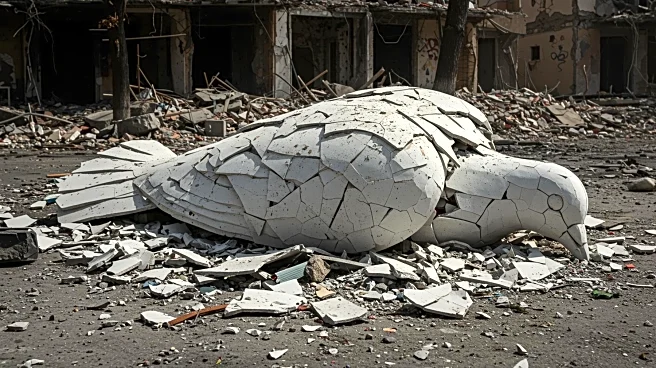What is the story about?
What's Happening?
The United Nations has released a report detailing war crimes committed during a violent outbreak in Syria in March. The U.N.'s Independent International Commission of Inquiry on Syria investigated the bloodshed in coastal communities, revealing that government security forces and other armed groups likely perpetrated these crimes. The violence resulted in approximately 1,400 deaths, mostly civilians, consistent with figures from the Syrian government and monitoring groups. The report found no evidence that Syria's central government directed its forces to commit these violations, although the government has denied any involvement and promised accountability for any security force members involved.
Why It's Important?
This report highlights the ongoing instability in Syria despite the overthrow of Bashar al-Assad in December. The sectarian violence underscores the fragile peace in the region, with clashes between Assad loyalists and the new government forces. The findings could impact international relations and humanitarian efforts, as the global community may increase pressure on Syria to address human rights violations. The report also serves as a critical document for accountability, potentially influencing future legal actions against those responsible for the violence.
What's Next?
The Syrian government has pledged to hold accountable any members of its security forces involved in the violence. International bodies and human rights organizations may push for further investigations and sanctions. The report could lead to increased diplomatic efforts to stabilize the region and prevent further sectarian clashes. Monitoring groups and international observers will likely continue to scrutinize the situation, ensuring that the promises of accountability are fulfilled.
Beyond the Headlines
The sectarian nature of the violence, involving Alawite and Sunni Muslim groups, highlights deep-rooted ethnic and religious tensions in Syria. The report may prompt discussions on the need for reconciliation and peace-building efforts to address these divisions. Long-term implications could include shifts in regional alliances and the role of international peacekeeping forces in maintaining stability.

















